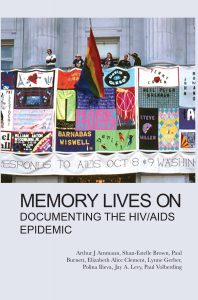Memory Lives On: Documenting the HIV/AIDS Epidemic

In the fall of 2019 the UCSF Archives & Special Collections, with the support of the UCSF AIDS Research Institute, organized an interdisciplinary symposium Memory Lives On: Documenting the HIV/AIDS Epidemic. This event marked the completion of a National Endowment for the Humanities funded project that was led by the UCSF Library in collaboration with the San Francisco Public Library (SFPL) and the Gay, Lesbian, Bisexual, Transgender (GLBT) Historical Society to digitize archival collections related to the early days of the AIDS epidemic in the San Francisco Bay Area and to make them widely accessible to the public online.
Documenting the history of HIV/AIDS and reflecting about the present and future of the epidemic is daunting. The ways in which we handle documentary evidence and produce knowledge from that evidence has profound effects on a wide range of social, economic, and health outcomes. The enormity and complexity of the stories and perspectives on the disease, which has affected millions of patients and communities around the world, present significant challenges that demand continual reexamination. The archivists and historians constantly struggle with questions such as "what do we collect, and from where" and "whose stories do we know best and whose voices are missing" from the historical record. The six essays presented here were drawn from the symposium, and they reflect on how researchers came to understand the disease, its impact on patients, institutions, communities, and cultures, and what historical documentation can teach us about future epidemics.